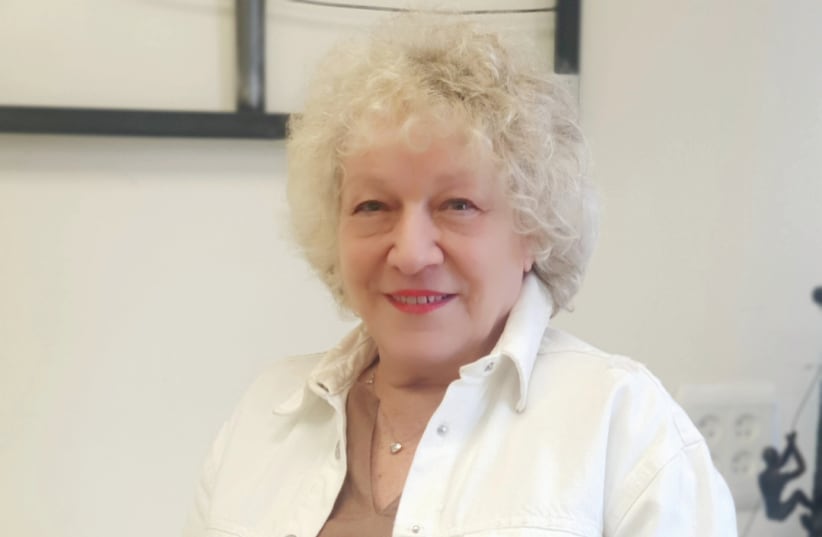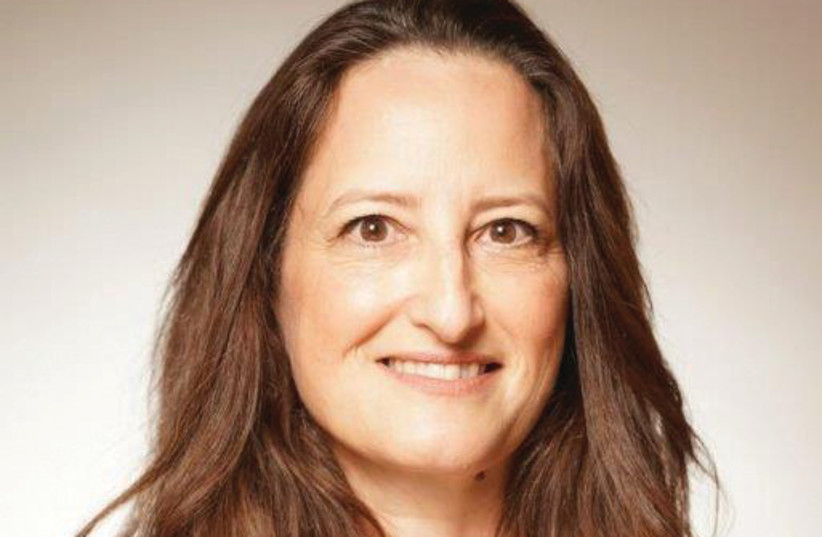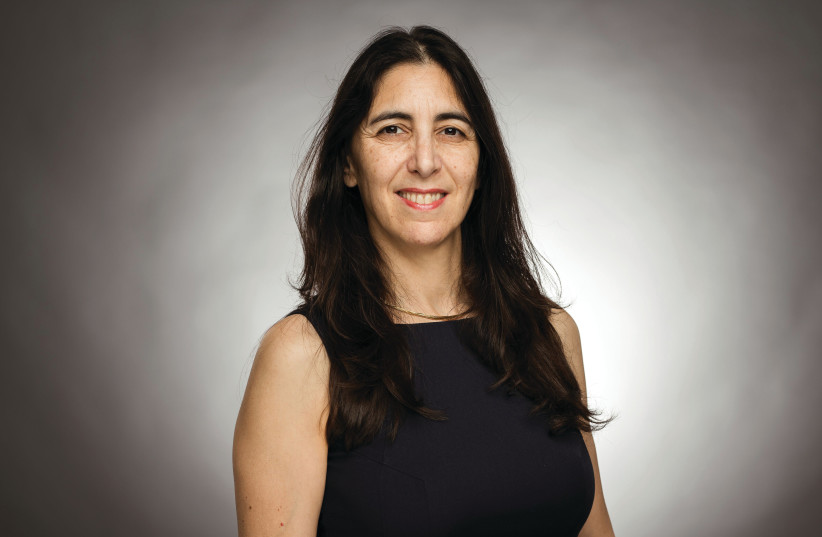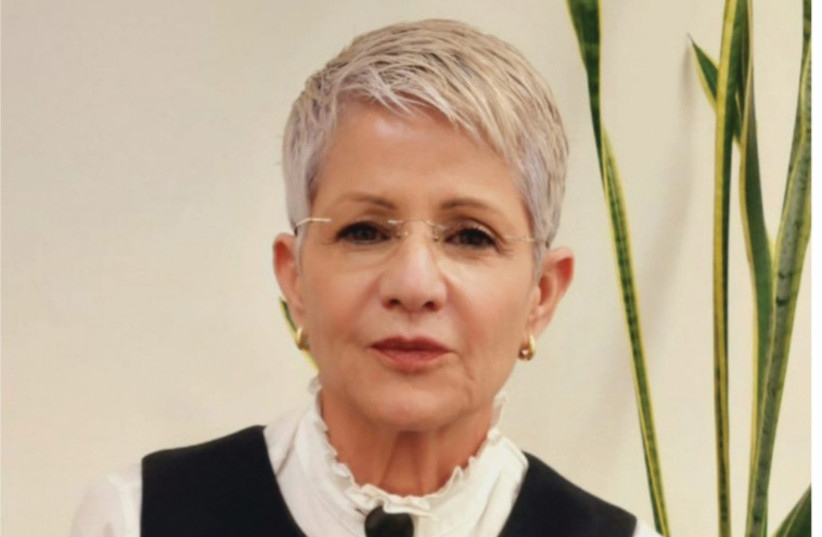WHEN DID YOU KNOW THAT YOU WANTED TO BE A DOCTOR?
At the end of my military service, the decision was made. My grandparents were doctors, but I never really knew them. My grandmother was killed in the war of liberation, and my grandfather died when I was two years old. My mother was an x-ray manager and my daughter decided at the end of her military service to become a doctor. Today she is a pediatric specialist. We are four generations of white cloaks, and my daughter joining in this path really moved me - she is an excellent doctor with indescribable sensitivity, a lot of compassion and a lot of intelligence, and these are the qualities that make a good doctor.
WHAT MADE YOU CHOOSE YOUR SPECIALTY?
I studied internal medicine. When you study internal medicine, you do rotations in different departments by choice. I chose oncology and realized that this is the field I ultimately wanted to practice. So I had two choices: to complete my speciality in internal medicine or to switch to oncology. I decided to first complete internal medicine because it serves as a foundation and provides valuable experience. I then went on to pursue an oncology specialty. I went to Paris to specialize at The Institut Gustave Roussy, the leading cancer center in Europe. I interned there. At the time, they were doing clinical research on lung cancer, and that's how I got into the field.Looking back today, I don't regret the longer path that I took, it provided me with the knowhow to think in a precise way, examine patients correctly, and make proper differential diagnoses.
ONCOLOGY IS A VERY CHALLENGING SPECIALTY.
It is a very difficult specialty. I began caring for lung cancer patients over 30 years ago, when the prognosis was very poor. Even to this day, lung cancer still remains the deadliest of all cancers. I remember that I spoke with two of my colleagues from abroad who told me that in order to survive in this field I should take on another type of cancer with better prognosis so that I would be able to see some light at the end of the tunnel. However, I chose to focus on lung cancer and I am happy to say that this field has significantly advanced since I first started treating patients.
WHAT ARE THE LATEST INNOVATIONS IN YOUR FIELD?
The treatment of lung cancer has undergone a revolution in the last decade in two areas -- biological therapy, including personalized medicine and an understanding of the genetics behind the growth and immunotherapy therapy, which is the repair of the immune system. These innovations have significantly improved the quality of life and survival of many patients. There are also new advancements in local treatments, such as improved and innovative surgery techniques, radiosurgery, and new radiation therapies.
I am proud to say that Meir Hospital is one of the hospitals leading innovative research in the field of oncology, and this directly translates into lifesaving treatments for our patients.
ARE YOU OPTIMISTIC FOR THE FUTURE?
In looking to the future, we still need to develop effective early detection screening for lung cancer, so that we can catch growths at an earlier stage and improve survival. We also need to focus on prevention, by raising awareness, especially among youth, of the dangers of smoking. Finally, we must continue to develop new drugs, new combinations, and new technologies to provide better survival and optimal treatments for patients. While we are still unable to talk about a cure, my hope is that soon, with all these advancements, we will be able to.
Chairperson of the Israeli Society of Maternal-Fetal Medicine.
DID YOU ALWAYS HAVE A PASSION FOR MEDICINE?
I have always loved science and people. During my service in the army, I realized that medicine was my destiny. For me, it is a way of living and not just work. The combination of doing something significant and interesting while having the privilege to help others means the world to me.
WHAT DREW YOU TO THIS FIELD?
The world of gynecology connects diverse fields of medicine including internal medicine and surgery - which leads to fascinating opportunities to develop, promote, research, and learn.
For me, the beauty of this field is its unique mix of challenging work and obstetric illnesses alongside particularly exciting moments, such as the moment a baby emerges into the world.
Taking care of women, especially during pregnancy and mostly when it is a complicated pregnancy, means a lot! Taking care of both the mother and her child makes it challenging and rewarding. Being a part of creating a new life is exciting, even after more than two decades and thousands of patients.
WHAT ASPECTS OF OB GYN DO YOU FIND PARTICULARLY EXCITING?
My field of specialization is 'high-risk pregnancies' - in most cases the interests of the mother and the fetus are identical and shared. But in the challenging situations where there is a 'conflict of interest', our job as doctors is to succeed in reaching the right solutions for everyone. Often, a decision has to be made immediately and under conditions of uncertainty, such as, for example situations where a maternal illness necessitates premature birth, which can put the baby at risk.
The decisions are challenging, they fill you with adrenaline, and the moments of success and these points fill you with tremendous satisfaction.
Another integral part of my work is medical education - I think I have the privilege of being able to train a generation of doctors who, beyond striving for professional excellence, will also strive to be excellent in the personal aspect, in the sense of respecting patients, listening to them, and applying personalized medicine alongside research.
WHAT’S IN STORE FOR THE FUTURE?
The latest innovations in my field are in genetic diagnosis and in combining big data and AI – artificial intelligence - in creating physicians’ assistant tools for complicated medical decisions.
Just during the last year, we improved our ability to collect and analyze clinical data, as well as implement new genetic data into our clinical consultations.
As such, I hope to be able to continue to lead innovation and collaborations in the world of women's medicine, in cooperation with numerous disciplines, while harnessing the amazing technological knowledge and capabilities we have today.
Senior lecturer, Sackler Faculty of Medicine and Sagol School of Neuroscience, Tel Aviv University.
When did you know that you wanted to be a doctor?
I wanted to be a doctor from an early age. I knew that I wanted to help people and do meaningful work. It was important for me that my work would be impactful and would have significant effects on people’s lives and well-being. On the other hand, I was fascinated by scientific research. Eventually I became both a physician and a researcher. I have completed an MD and a PhD in neuroscience. I am now involved in neuroscience research, along with my clinical work as head of the Neurological Department.
What made you choose your specialty?
I find neurology fascinating. The brain is the most complex and exciting organ in the body. I always wondered how our brain functioned and how consciousness evolved. One of the biggest enigmas is how neurons survive and function for so many decades, as the vast majority are not replaced. The key to their survival is related to their network and the nourishing environment.
As a neurologist, I can help people manage severe conditions and diseases and improve their lives. To lead them through complex situations with empathy, and holistic care is important. I see it as my calling.
What are the latest innovations in your field?
The past decade brought great scientific progress across neurological diseases and transformed the fields of neurology and neuroscience. Impactful scientific discoveries resulted in new therapeutic strategies in many neurological diseases, including tremendous advances in the areas of stroke, headaches, neuroimmunology and neurodegenerative diseases. Technological progress advanced our abilities to detect, investigate and understand brain disorders. We are living in a fascinating era, and our abilities to help people suffering from neurological conditions has increased dramatically.
What significant move have you made this year?
I was recently elected to be the chairperson of the Israeli Headache Society. I am one of the founders of this society, which is part of the Israel Neurological Association. Migraine is the second leading cause of all global disability, yet it is still regarded as an invisible disease. From relationships to careers, migraine can disrupt every aspect of a person's life.
I believe that our mission is to improve the lives of people suffering from headache disorders. In recent years, new therapeutic tools were developed. The need to educate physicians, health professionals and the public in order to increase awareness and encourage diagnosis and treatment is crucial in order to increase the quality of life of people suffering from migraine and other headache disorders.
When did you start working at the hospital?
For most of my life, I was involved in the hotel industry. Hotels are similar to certain aspects of the complexity and challenges that exist in hospitals. The director of the hospital wanted to bring standards from the world of hotels into the hospital. He contacted me and asked me to join the Meir Medical Center.
Meir Medical Center is known as one of the leading medical centers, and I was given the mandate to take care of the entire operational support system that provides a better patient experience for people who need the hospital's care.
What is your task?
My job is to make it easier for the staff to do what they know how to do so well, and to ease the patients’ experience at the same time.
What are the changes you have made?
One of the tasks that stood before us was to make the food more appealing and healthier in light of global trends. We enabled patients to receive a menu through an application whereby they could choose their meals, while receiving medical recommendations and taking their personal taste into consideration.
The internal medicine wards, which used to be gray, received a more colorful paint job and a touch of tenderness and were redesigned to be at a ‘hotel’ level. The dining rooms became a lounge and guest rooms for families, which was part of the new general agenda that focuses on providing a more pleasant experience for the staff and the patients.
The fact that the staff feel that they are hosting their patients in a special place adds to the unit's pride for all staff members, and the reactions are correspondingly emotional. It is important for me to point out that it is impossible to do all these tasks without a dedicated and professional team that gives its soul 24/7 and is ready to mobilize at any stage and for any challenge that is presented to them.
What is your vision?
People who are admitted to the hospital are usually in one of the most challenging periods of their lives and aren’t at their best. They don't have the ability to take care of themselves at this stage, and we as a society must do everything we can to take care of people in every way – strengthen the team that will give them the best professional care and support them in any way that will enable them to get through that period.
This article was written in cooperation with Meir Medical Center



